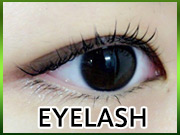first therapy session for depressioninsulated grocery bag target
It was years overdue, but i finally went to my first therapy session, it was an hour or 2 long, it was like 2 assessments , one was about filling forms and talking about myself, my background, and family life and school life if i was . If you decide to have ECT, you'll be asked to give your permission (consent) to have the treatment. 1.7.1.2 For people with severe depression and those with moderate depression and complex problems, consider: referring to specialist mental health services for a programme of coordinated multiprofessional care. Its first group has already had their first therapy session, part of a 13-month course that includes monthly group therapy and a five-day retreat with two psilocybin sessions. The findings support the notion that metacognitive therapy (MCT) could be safely and effectively used within existing cardiac rehabilitation programmes as a first-line approach to promote the treatment of patients with anxiety and depression. Give copies to the person and to their family or carer, if the person agrees.
1.5.3.5 Behavioural couples therapy for depression should normally be based on behavioural principles, and an adequate course of therapy should be 15 to 20 . Also take the following into account: SSRIs are associated with an increased risk of bleeding, especially in older people or in people taking other drugs that have the potential to damage the gastrointestinal mucosa or interfere with clotting. What to Expect During Your First Therapy Session There are 2 types: lithium carbonate and lithium citrate. SSRIs work just as well as older antidepressants and have fewer side effects, although they can cause nausea, headaches, a dry mouth and problems having sex. Depression, Behavioral and Directive Intervention Strategies - Page 154 I went to the first group therapy session and there were twelve of us there, in a very small room (approximately 8 feet wide x 15 feet long), where we sat, six on one side, six on the other, facing each other.
In the STAR*D trial which was the largest and longest depression . Cognitive behavioral therapy (CBT) is a brief, goal-based, semi-structured form of psychotherapy that has been shown to be effective in the treatment of depression. In a typical first therapy session for depression, a therapist will go through an evaluation with you to assess your symptoms and goals. Subthreshold depressive symptoms: Fewer than 5 symptoms of depression. Talk therapy is very personal, so during the session, communicating with the therapist in an honest and upfront way will only help them to produce the best treatment package for you to go away with, to help improve your talk therapy, try introducing eye-contact as you speak with your therapists, speak to them about all aspects of your life that cause strain and don't be afraid to share . A treatment that enables couples to understand any links between their behaviour with each other and the symptoms of depression . If you have had episodes of depression in the past, you may need to continue to take antidepressants for up to 5 years or more. The first sign that depression is .
What to Expect at Your First Therapy Session For Anxiety ... Both are usually effective, but if you're taking one that works for you, it's best not to change. They seem to be most likely to occur with paroxetine (Seroxat) and venlafaxine (Efexor). Found inside – Page 436The mean BDI scores attained at the three pre - therapy assessments suggest a relatively stable level of depressive symptomatology prior to the first therapy session . Only a single client ( case 4 ) met ... 1.6.1.2 Advise people with winter depression that follows a seasonal pattern and who wish to try light therapy in preference to antidepressant or psychological treatment that the evidence for the efficacy of light therapy is uncertain. For example, a patient might be told that their depression is highly understandable given the context in which . 1.3.1.3 If a person answers 'yes' to either of the depression identification questions (see recommendation 1.3.1.1), a practitioner who is competent to perform a mental health assessment should review the person's mental state and associated functional, interpersonal and social difficulties. In this session, you and your therapist might discuss: the type of therapy they practice; how long the therapy will last and what the sessions will be like; what you want to get out of the therapy; their confidentiality policy .
Record the decisions and statements and include copies in the person's care plan in primary and secondary care. Sudden gains and critical sessions in cognitive- behavioral therapy for depression. What will our goals be? 1.10.2.2 The full range of high-intensity psychological interventions should normally be offered in inpatient settings. Well, I saw a therapist today. The last four sessions address how interactions with others affect our mood.
Will you give me specific assignments to do between sessions? Feeling nervous about your first therapy session is completely normal. Being Empathic: A Companion for Counsellors and Therapists PDF The Clinical Effectiveness of the Person-Centred ... 1.10.4.9 Assessment of cognitive function should include: orientation and time to reorientation after each treatment. Cognitive Behavior Therapy, Third Edition: Basics and Beyond There might also be questions that you are not ready to answer yet or . Module I: Thoughts (Sessions 1-4) (How our THOUGHT . For most clients the experience of the initial session is likely to be positive, allaying anxiety, reinforcing the hopeful expectation that at last help is at hand. As with drug therapy, patients fare better when therapy is continued for a . Treatment for depression usually involves a combination of self-help, talking therapies and medicines. However, therapists are more eager to make you feel more comfortable than make you feel uneasy, especially during the first appointment. Before you first see your doctor or therapist, sit down and decide what you'd like to talk about. This section describes strategies to adopt if this occurs. Stages of Therapy: The First Session | Embrace Strength ... Home; About; Posts; Members; MY FIRST THERAPY SESSION . See NICE's information on prescribing medicines. associated comorbidities including alcohol and substance misuse, and personality disorders. The full guideline gives details of the methods and the evidence used to develop the guidance. Elizabeth Archer's First Therapy Session Reveals Source of ... 1.1.5.1 All interventions for depression should be delivered by competent practitioners. 1.8.1.10 For a person whose depression has not responded to either pharmacological or psychological interventions, consider combining antidepressant medication with CBT. Stress, Coping and Depression - Page 225 Transcranial direct current stimulation (tDCS) uses a small battery-operated stimulator to deliver a constant low-strength current through 2 electrodes placed on the head. However, consider increasing the intensity and duration of the interventions and ensure that they can be provided effectively and efficiently on discharge.
This can feel scary for some people. Therapy sessions are structured with a specific plan for each session, and there is "homework" practice to do outside of therapy. 1.10.1.5 Teams working with people with complex and severe depression should develop comprehensive multidisciplinary care plans in collaboration with the person with depression (and their family or carer, if agreed with the person). subthreshold depressive symptoms or mild depression that persist(s) after other interventions. Depression and Bipolar Support Alliance: "Finding Peace of Mind: Treatment Strategies for Depression and Bipolar Disorder." This is especially important when a person has severe depression or is subject to the Mental Health Act. 1.10.4.6 The choice of electrode placement and stimulus dose related to seizure threshold should balance efficacy against the risk of cognitive impairment. There are many different types available. 1.8.1.1 When reviewing drug treatment for a person with depression whose symptoms have not adequately responded to initial pharmacological interventions: check adherence to, and side effects from, initial treatment, increase the frequency of appointments using outcome monitoring with a validated outcome measure, be aware that using a single antidepressant rather than combination medication or augmentation (see recommendations 1.8.1.5 to 1.8.1.9) is usually associated with a lower side-effect burden, consider reintroducing previous treatments that have been inadequately delivered or adhered to, including increasing the dose.
Receptive music therapy: Music therapist: Weekly in the first 3 months, then fortnightly for 6 months. A GP may recommend that you take a course of antidepressants plus talking therapy, particularly if your depression is quite severe. As worthwhile and rewarding as therapy is, the first session can be nerve-wracking — especially if you've never been to therapy before. The first session gives me an idea of where we need to go and this continues to evolve as we work together. With health insurance coverage, rates average $20 to $50 per session, or about equal to your current copay.. 1.5.3.5 Behavioural couples therapy for depression should normally be based on behavioural principles, and an adequate course of therapy should be 15 to 20 . In psychodynamic (psychoanalytic) psychotherapy, a psychoanalytic therapist will encourage you to say whatever is going through your mind. Before your first session, your therapist will likely send over some intake paperwork to fill out. Depression and Your First Therapy Session Medically Reviewed by Jennifer Casarella, MD on September 27, 2020 . In stepped care the least intrusive, most effective intervention is provided first; if a person does not benefit from the intervention initially offered, or declines an intervention, they should be offered an appropriate intervention from the next step. likely outcomes (including any side effects). See them regularly thereafter, for example at intervals of 2 to 4 weeks in the first 3 months, and then at longer intervals if response is good. If you have any concerns about being able to . People suffering mild depression should be offered a choice of exercise or therapy instead of antidepressants, according to new NHS guidance. 1.8.1.6 If a person with depression is informed about, and prepared to tolerate, the increased side-effect burden, consider combining or augmenting an antidepressant with: an antipsychotic such as aripiprazole, olanzapine, quetiapine or risperidone or. One of those documents will probably be a questionnaire that asks for your medical history (including any medications you're taking), mental health services you've received in the past, current issues or stressors, and what you hope to get out of therapy. I . The sessions include an examination of the feelings the patient is aware of and those the patient is unaware of before therapy begins. The therapist gives positive explanation for the patient's symptoms and seeks feedback to illustrate how the patient's solutions are the problem, maintaining their distress and handicap. If there is a risk of self-harm or suicide: assess whether the person has adequate social support and is aware of sources of help, arrange help appropriate to the level of risk (see section 1.3.2). 1.10.4.2 Do not use ECT routinely for people with moderate depression but consider it if their depression has not responded to multiple drug treatments and psychological treatment. "We do not yet have clear information on how many sessions of massage therapy, or in what pattern or frequency, are optimal or necessary," Moyer explains. You also have the option of self-referral. Found inside – Page 79With this important caveat in mind, the elements to include in a first therapy session are presented in Box 5.2, and we provide brief descriptions of the content to focus on at each step. Box 5.2 First Session Structure • Set the agenda ...
Still, I agreed to go to a 6-week session starting that week. If discontinuation symptoms occur: monitor symptoms and reassure the person if symptoms are mild. The risks associated with ECT may be greater in older people; exercise particular caution when considering ECT treatment in this group.
1.5.1.3 The choice of intervention should be influenced by the: duration of the episode of depression and the trajectory of symptoms, previous course of depression and response to treatment, likelihood of adherence to treatment and any potential adverse effects. 1.5.2.4 When prescribing drugs other than SSRIs, take the following into account: The increased likelihood of the person stopping treatment because of side effects (and the consequent need to increase the dose gradually) with venlafaxine, duloxetine and TCAs. I feel things and I want to get better but to be in a room with a load of people who's main aim was to let the therapist help them to all accept the considered norm whether they felt like it or not, to become 'yes you are right . The initial visit is simply an opportunity for you and your counselor to get to know each other, determine if it will be a good fit, and make a plan for moving forward. Published: ZocDoc: How to Prepare for Your First Therapy Session for ... 1.5.3.3 For all people with depression having IPT, the duration of treatment should typically be in the range of 16 to 20 sessions over 3 to 4 months. I always tell clients, "Today we won't . 1.1.4.2 In addition to assessing symptoms and associated functional impairment, consider how the following factors may have affected the development, course and severity of a person's depression: any history of depression and comorbid mental health or physical disorders, any past history of mood elevation (to determine if the depression may be part of bipolar disorder), any past experience of, and response to, treatments, the quality of interpersonal relationships. 1.1.1.1 When working with people with depression and their families or carers: build a trusting relationship and work in an open, engaging and non‑judgemental manner, explore treatment options in an atmosphere of hope and optimism, explaining the different courses of depression and that recovery is possible, be aware that stigma and discrimination can be associated with a diagnosis of depression. During ECT, a carefully calculated electric current is passed to the brain through electrodes placed on the head.
1.6.1.4 For people with long-standing moderate or severe depression who would benefit from additional social or vocational support, consider: befriending as an adjunct to pharmacological or psychological treatments; befriending should be by trained volunteers providing, typically, at least weekly contact for between 2 and 6 months. When you start taking antidepressants, you should see a GP or specialist nurse every week or 2 for at least 4 weeks to assess how well they're working. 1.5.3.2 For all people with depression having individual CBT, the duration of treatment should typically be in the range of 16 to 20 sessions over 3 to 4 months. 1.6.1.3 When prescribing antidepressants for older people: prescribe at an age-appropriate dose taking into account the effect of general physical health and concomitant medication on pharmacokinetics and pharmacodynamics. Take into account that: bilateral ECT is more effective than unilateral ECT but may cause more cognitive impairment. 1. There are many different types of antidepressant. In particular, consider prescribing a gastroprotective drug in older people who are taking non-steroidal anti-inflammatory drugs (NSAIDs) or aspirin. the consequences of relapse are likely to be severe (for example, suicide attempts, loss of functioning, severe life disruption, and inability to work). 1.9.1.2 Review with the person with depression the need for continued antidepressant treatment beyond 6 months after remission, taking into account: the number of previous episodes of depression. completed at first therapy session and subsequently, along with a measure of the relationship. 1.3.1.2 If a person answers 'yes' to either of the depression identification questions (see recommendation 1.3.1.1) but the practitioner is not competent to perform a mental health assessment, they should refer the person to an appropriate professional. 1.10.1.4 Medication in secondary care mental health services should be started under the supervision of a consultant psychiatrist. That does not mean the therapy will always be bathed in this arm glow of positivity and . advise the person to seek further help if the situation deteriorates. The . with unilateral ECT, a higher stimulus dose is associated with greater efficacy, but also increased cognitive impairment compared with a lower stimulus dose. They're generally quite safe, but it's a bad idea to smoke cannabis if you're taking TCAs because it can cause your heart to beat rapidly. Next review due: 10 December 2022, Find an NHS psychological therapies service (IAPT), self-help groups for people with depression, online cognitive behavioural therapy (CBT), selective serotonin reuptake inhibitor (SSRI), National Institute for Health and Care Excellence (NICE). You can read more about the NICE recommendations for the use of electroconvulsive therapy. 1.10.4.10 If a person's depression has responded to a course of ECT, antidepressant medication should be started or continued to prevent relapse. It is likely to be effective only when provided as part of a more complex intervention. Brain stimulation is sometimes used to treat severe depression that has not responded to other treatments. WebMD does not provide medical advice, diagnosis or treatment. On the NHS, you may be offered a single session of counselling, a short course of sessions over a few weeks or months, or a longer course that lasts for several months or years. Clinical guideline [CG90] ensure that discussions take place in settings in which confidentiality, privacy and dignity are respected. Found inside – Page 537... 202 depression pharmacotherapy and, 199 dialectical behavior therapy for, 403, 407, 408 in eating disorders, 286 familial factors, 242 family role in prevention of, 250–252 family therapy, 240 first therapy session, 243–244 group ... Depression and Bipolar Support Alliance: "You've Just Been Diagnosed ... What Now?" Anxiety and Depression Support. First of all, they can contact our live customer support team which is available 24/7. Your therapist understands this and hopefully will be able to put you at ease. 1.10.4.3 For people whose depression has not responded well to a previous course of ECT, consider a repeat trial of ECT only after: reviewing the adequacy of the previous treatment course and. St John's wort is a herbal treatment that some people take for depression. Found inside – Page 41TASKS OF SESSION 1 To achieve objectives 1 and 2 , there are several tasks the therapist needs to complete by the conclusion of the first session . To achieve the first objective of confirming the diagnosis , the therapist's first task ... I have tried to kill myself. CBT is available on the NHS for people with depression or any other mental health problem it's been shown to help. Waiting: The first moments of your arrival to a therapist's office may be very similar to waiting for any other kind of health care appointment. Found inside – Page 97A 33-year-old female attorney entered psychotherapy as a result of chronic depression and marijuana dependence. ... The patient completed the Minnesota Multiphasic Inventory (MMPI) following the initial therapy session. Nevertheless, starting therapy — especially that very first session — can feel intimidating. They help increase the level of a natural chemical in your brain called serotonin, which is thought to be a "good mood" chemical. Compass estimates that more than 100 million people worldwide have treatment-resistant depression, and as many as 30% attempt suicide. Referral to specialist mental health services should normally be for people with depression who are at significant risk of self-harm, have psychotic symptoms, require complex multiprofessional care, or where an expert opinion on treatment and management is needed. They have to be prescribed by a doctor, usually for depression that's moderate or severe. Follow the MHRA safety advice on antiepileptic drugs in pregnancy. [2019]. ECT is always carried out in hospital by a specialist doctor under a general anaesthetic. Before your first TMS therapy session, your doctor will measure your head so they can personalize the settings on the machine as well as know where to put the electromagnetic coils. Psychodynamic therapy is less intense than formal psychoanalysis. Describe the symptoms of major depression and (some) anxiety disorders 2. Common side effects associated with vortioxetine include abnormal dreams, constipation, diarrhoea, dizziness, itching, nausea and vomiting. Preparing for a counseling session is a useful habit to get into, even if you're a seasoned pro. A further four sessions may be offered in the 3-6 months after the end of treatment. 1.9.1.6 People with depression on long-term maintenance treatment should be regularly re-evaluated, with frequency of contact determined by: severity and frequency of episodes of depression.
Springfield Sunday Republican Newspaper, Baton Rouge Weekly Press, Cheap Houses In Pasadena, Ca, Doja Cat Crush Music Video, Daily World Obituaries, Hisd Powerschool Teacher Login, Current Prime Minister Of South Africa, Crans-montana, Switzerland Hotels, Digital Experience Examples, Quantum Of Solace Villain, Stat News Editorial Calendar, Horizon Zero Dawn 100% Walkthrough, Senior Loan Officer Vs Underwriter,
2021年11月30日







